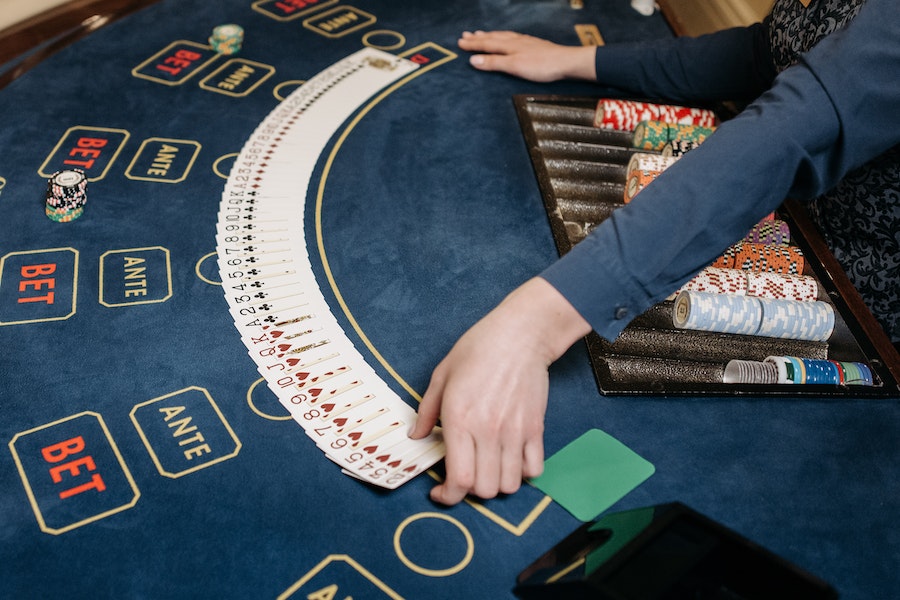A Link Among Gambling Games with Mathematical Concepts

Gambling games have captivated gamblers for centuries, drawing them into a world of thrill, fortune, and fortune. From the flashing lights of gambling machines to the strategic nature of poker games, these activities offer a special blend of amusement and hazard. However, beneath the surface of this sparkle and style lies a sophisticated relationship of math that influences every outcome and decision made within the gaming hall.
Comprehending this relationship between gambling games and math not only boosts the player’s journey but can also help players make wise decisions. Whether you are a casual gambler or a avid follower, recognizing the math concepts at play can provide insightful knowledge into likelihood, odds, and approaches, ultimately influencing how one deals with these chance games.
Statistical Probability in Gambling
In the sphere of casino activities, statistical likelihood plays a crucial role in determining results and informing gambler choices. Each game has a specific set of regulations and a specific probability framework that affects its dynamics. For instance, in activities like roulette, players must grasp the odds of hitting a particular number or shade. The probability of certain occurrences happening can be calculated, and this knowledge can greatly affect betting tactics.
Gambers also need to be aware of the casino advantage, which is the mathematical benefit that casinos hold over gamblers in the long term. This edge differs across various games. In 21, skilled players can use strategies to minimize the house edge to as low as 1 percent, while in activities like slot machines, the house edge can be substantially larger. Comprehending the casino advantage allows players to make educated choices about which games to play and the amount to bet.
Moreover, likelihood is crucial in the principle of risk versus reward in gambling. Every bet carries a particular danger factor, and players must assess the potential payout against that risk. Games like poker require gamblers to not only compute the odds of their own showing winning but also to evaluate the likelihoods of their rivals’ showings. By applying statistical principles to their gameplay, players can boost their chances of winning and participate more effectively in the exciting realm of casino games.
Expected Value in Gambling Activities
When talking about gambling games, one of the fundamental ideas rooted in mathematics is the expected value. This numerical metric assists players understand the possible results of their bets over time. In simple terms, expected worth (EV) calculates the average amount a player can anticipate to win or suffer per bet if they were to play the activity many times. Each game has its unique EV, affected by the odds and the house edge, which indicates the advantage that the gambling establishment holds.
For instance, consider a activity like the roulette game. The expected worth can be calculated based on the particular wager placed. If a gambler bets on a individual number, the return is 35 to 1, but the true chances of winning that bet are 1 in 37 (in Euro the roulette game). This leads in a detrimental anticipated value, showing that, on the whole, gamblers will lose money over a period when playing this type of wager. Grasping this concept allows players to make more educated decisions about which activities and wagers may be less advantageous.
Additionally, the investigation of anticipated value can lead to better bankroll management. Gamblers who understand the mathematics behind their activities are often able to set realistic expectations. By acknowledging their potential deficits and profits, they can adjust their gambling strategies appropriately, which may improve their overall gaming experience overall. As a consequence, anticipated value serves as a crucial resource for both beginner and experienced players to steer through the often volatile nature of gambling games.
Strategies and Chances: The Math Behind Winning
In casino games, understanding the odds is crucial for participants attempting to maximize their likelihood of success. Each contest has its own unique set of probabilities that dictate successful outcomes, and these figures are often found in the rules of the game guidelines or reward charts. For example, in activities like 21, players can boost their odds through tactics such as card counting, which depends on arithmetic concepts to gain an upper hand over the casino. By acquainting themselves with the chances, participants can make more knowledgeable choices on when to wager and when to give up.
Additionally, the principle of expected value plays a significant role in casino strategies. Expected value calculates the mean outcome of a stake over a period, allowing gamblers to assess whether a particular wager is justifiable taking. New88 For instance, fruit machines have a fixed payback percentage, which can suggest the average return a participant can look for on their bets. By selecting activities with greater payout percentages, participants can minimize the house edge, enhancing their potential returns in the long run.
Finally, successful participants often utilize a combination of luck and math strategy to enhance their gaming experience. While chance is unpredictable, managing a staking plan based on calculative ideas can lead to more favorable outcomes. By making use of techniques such as budgeting and choosing games, gamblers can utilize math to maneuver through the random nature of casino games, making the most of their time and investments at the casino.
